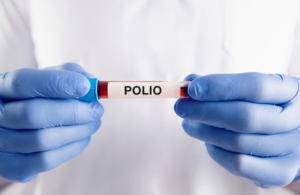The novel type 2 oral polio vaccine (nOPV2), developed by a team including scientists from the Medicines and Healthcare products Regulatory Agency (MHRA), has today (9 January) been quality-assured (prequalified) by the World Health Organization (WHO).

Image Credit: Medicines and Healthcare products Regulatory Agency (MHRA)
Three years after it received its Emergency Use Listing (EUL) and with 950 million doses now delivered worldwide, nOPV2 has been prequalified by the WHO, following analysis of outcomes in vaccinated populations, confirming the strong safety profile and effectiveness of the vaccine.
The nOPV2 vaccine helps to protect children from polio while lowering the risk of vaccine-derived outbreaks.
Prequalification is a mark of quality assurance granted by the WHO and will make it easier for more countries to access and use nOPV2. Now it is granted, WHO member countries can obtain and use nOPV2 without the need to meet the strict readiness and monitoring requirements previously required under EUL.
Prequalification will therefore ensure broad and long-term accessibility for international agencies to distribute nOPV2 in developing countries.
Until it has been completely eradicated, polio will continue to be a threat to children around the world.
The novel type 2 oral polio vaccine has already protected millions of children and today’s announcement from the WHO will mean greater access for many.
Prequalification has come following years of collaboration, and it’s through continued partnership, fast and accurate detection and broad vaccine coverage, that will finally see polio eradicated.”
Dr Andrew Macadam, Principal Scientist, MHRA
Polio is an infectious disease caused by the poliovirus, mostly transmitted through contact with infected farces via contaminated food and water.
While many people may never show symptoms, in extreme cases, especially for babies and children under the age of five, polio can lead to permanent paralysis or death.
The original oral polio vaccines (OPVs), which have reduced polio cases by more than 99% since 1988, work by delivering a live but weakened version of poliovirus to children.
Unlike those used in the UK, OPVs can be transported over large distances without the need for cold storage, allowing the vaccine to be delivered in hard-to-reach parts of the world.
However, in rare instances, when not enough children are vaccinated with an OPV, the weakened virus in the vaccine can pass among under-immunized populations and, over time, change to a form which can again cause paralysis.
Similarly effective to other OPVs in protecting against polio, genetic modifications to nOPV2 have significantly reduced the risk of the poliovirus mutating and becoming harmful again.
Three years ago, in response to the increased risk of vaccine-derived outbreaks in Africa and Asia, nOPV2 became the first vaccine to receive a WHO Emergency Use Listing.